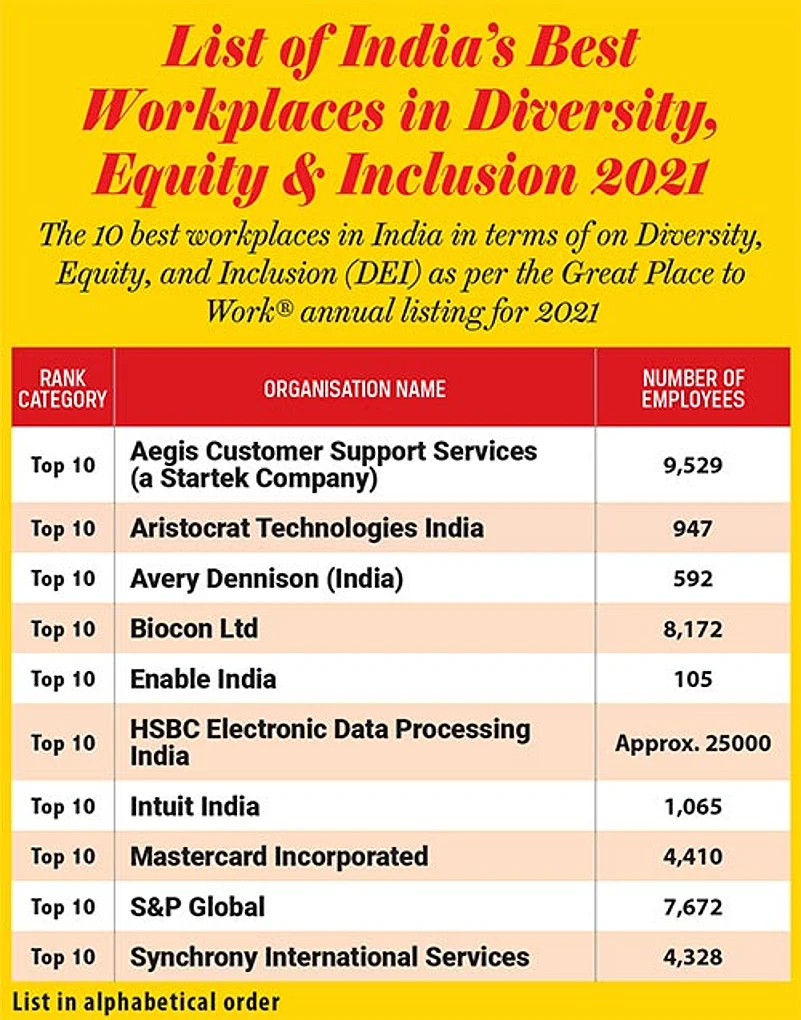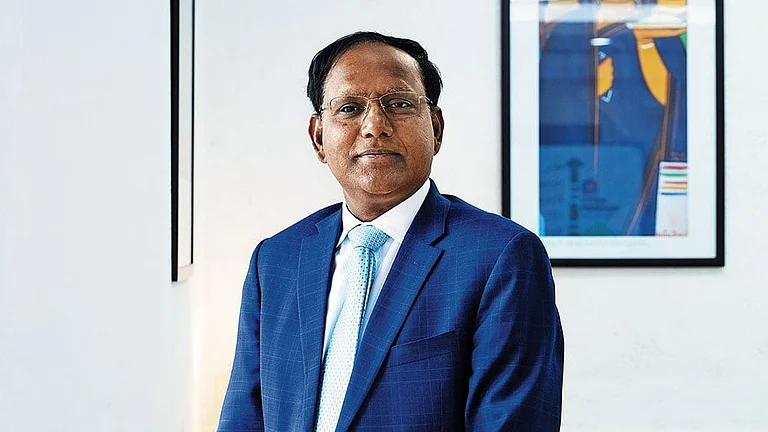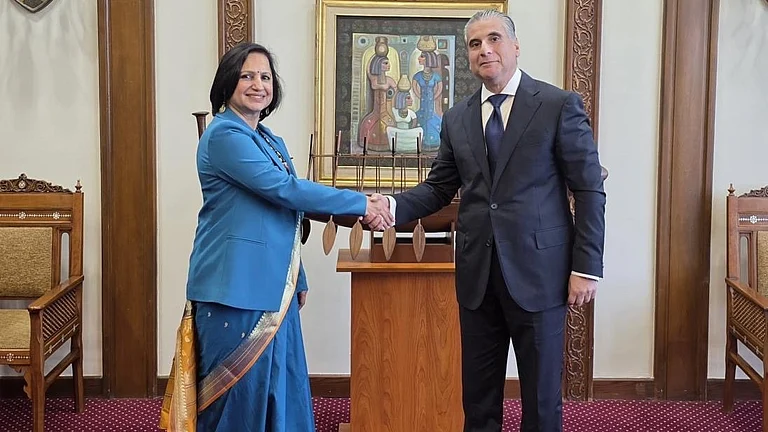Claudia Brind-Woody, an American business executive, had once said, “Inclusivity means not just ‘we’re allowed to be there’, but ‘we are valued’. I’ve always said: smart teams will do amazing things, but truly diverse teams will do impossible things.”
This statement carries the sentiment that ought to be embedded in the future of a 21st century workplace. As the discourse and practice of Diversity, Equity, and Inclusion (DEI) gains momentum around the world, it is more critical than ever to reflect and analyse the efficacy of the steps taken. Isolated efforts to ensure compliance through cursory policies will fail to bring about a systemic and sustained change. The primary move towards a more equitable workplace culture requires one to acknowledge the complexity of truly addressing disparities—the ones that have been systematically passed on through generations of prejudice that cannot be solved by tracking representation alone. Today, it is essential for workplaces to adopt a multifold approach by embracing the sentiments of employees, launching meaningful policies that impact internal and external stakeholders along with adequate representation.

At the forefront of this effort, Great Place to Work® India launched the Workplace Inclusion Index™ in partnership with the Confederation of Indian Industry. The Workplace Inclusion Index™ is the country’s only holistic study on DEI and considers feedback of employees, adequate representation and also studies inclusive practices. The study conducted in 2021 represented the voice of over a lakh employees across 11 industries in the country. Of the total respondents, 34% of the employees belonged to historically excluded groups like women, persons with disabilities, employees who have joined after a career break, LGBTQIA+, displaced persons, rescued survivors, former sportspersons and other opportunity-deprived and underrepresented groups. The construct of the Index is based on 35 statements where respondents were asked to rate each statement using a four-point scale. The sentiment towards the statements is calculated using the average of all valid ratings.
The organisations that participated in the assessment have got an average score of 84 out of 100, signifying a positive agreement on the sentiment of the workplace being inclusive. This statistic affirms the position of these organisations on their journey of building diversity, equity, and inclusion for their employees. The same positive sentiment was expressed by employees who feel that there is adequate leadership participation that drives inclusion and the communication around it. It is clear from the sentiments that employees believe the leadership has played a major role in bringing inclusion into their organisational culture by displaying commitment to creating an inclusive workplace and themselves becoming role models for the change.
While a top-down approach has enabled these organisations to percolate the agenda of DEI through practices, having equitable policies is equally important. When compared with the bottom quartile, the employees at the Best Workplaces are 10% more likely to agree with having an infrastructure to support a variety of individual needs, including accessible infrastructure for persons with disabilities. Today, among the Best Workplaces, 50% (only 33% in the Rest) conduct accessibility audits and 70% (only 39% in the Rest) abide by the accessibility guidelines for their technological platforms.
The support that employees receive from their immediate supervisor remains the most salient method for the implementation of practices. Employees have shared their opinions on how they feel psychologically and emotionally safe at work due to the support of their managers. This is possible by having respectful communication with team members and being sensitive towards understanding individual needs and making reasonable accommodations.
Intuit India organises quarterly workshops to sensitise managers about combatting and circumventing their unconscious bias. These practices have been effective in developing empathy in the managers towards their team members. To support the psychological safety of individuals at the workplace, it has also integrated an Ethics Hotline to share incidents of exclusion by employees and provide resolution while maintaining anonymity. The participating organisations have certainly made their employees feel motivated by supporting and caring for individual needs through inclusive practices. For all participating organisations, employees returned an average feedback of 85 on feeling motivated to work and give their best at work every day. Diversity in the representation of these organisations also has a pivotal role to play. An average representation of 30% of women in the organisations and a total of 34%, including other historically excluded groups in the employee strength, catalyses innovation at work, as perceived by employees.
However, sometimes, despite the efforts and intent, employees agree that they feel judged for being themselves at the workplace and are also compelled to change to fit into their teams. This is evident from the low feedback shared by employees on the dimension of culture and workplace biases. The Great Place DEI framework identifies four major workplace biases – workplace stereotypes, a sense of belonging, work allocation, and promotions. In the 2021 study, employees shared a feedback score of 72 around the sentiment of workplace biases. They express a low sense of belonging as they feel judged and compelled to change themselves to feel accepted at workplaces. Today, while 82% of organisations conduct sensitisation workshops for various diverse groups within their workforce, not many formally track their outcome. This leads to a lag in effectively inculcating behavioural changes that counter these workplace stereotypes.
This also signifies the importance of having a balance of formal policies and informal practices to address inclusion. Aristocrat Technologies India has a practice of Friday Box Office sessions where it engages employees through short movies on gender, sexual orientation and other societal issues, moderated by senior leaders and followed by a discussion on the subject to understand the views of the attendees and raise awareness on it. To address issues, it is utilising the fact that cinema and art reflect society and provide a better understanding of our communities.
Aegis Customer Support Services, a Startek company, follows a hexagonal model where it consciously focuses on age, gender, language, disability, the economically weaker section, and indigenous people when crafting their policies and practices. As a part of this practice, it has trained and hired women from indigenous backgrounds to become part of the organisation.
Today, we witness organisations in India putting in conscious effort to celebrate and welcome diversity. While it is clear to the organisations that diversity, equity, and inclusion bring talent, innovation, continuous learning, and development, it also adds to their attractiveness as a brand. With regards to recommending the organisation to friends and families, employees shared an average feedback of 87 on 100 in the 2021 study. By being part of an inclusive organisation, employees become advocates, thereby attracting more clients and talent from the market. One such organisation is Synchrony International Services which leverages infrastructure adjustments and reasonable accommodation to hire more women, ex-veterans, and persons with disabilities in its teams. It also does so by celebrating the diversity that lies both inside and outside the organisation.
Great Place to Work® India’s study of India’s Best Workplaces in terms of Diversity, Equity & Inclusion aims to equip individuals and organisations with the knowledge of the Best Workplaces from around the world to unleash the full potential of workplace diversity. To gather all the insights into one statement, it would be apt to say that diversity is a fact and a reality that will remain. In a country like India where languages and culture change every 100 miles, one question remains—how do we utilise this talent and human potential for mutual growth?
(The author is a consultant of Diversity, Equity & Inclusion at Great Place to Work® India)


























